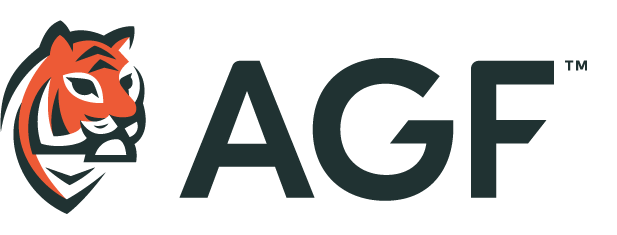
Do-Nothing Washington Hits the Wall
Author: Greg Valliere
January 18, 2024
A FEEL-GOOD MEETING between President Biden and Congressional leaders yesterday produced no deals, although there’s bipartisan agreement that the U.S. should not abandon allies like Ukraine. But that requires agreement on immigration reform, which could take weeks or months to resolve. Congress will spend much of February on vacation.
WHY NO BORDER REFORM? The answer, like everything in this city, is political. House Republicans have little incentive to move on immigration because they can blame the failure to act on the Democrats, a red-hot political issue for the GOP, propelling Donald Trump’s landslide in Iowa. Voters want action but why should Republicans resolve their strongest issue?
THERE’S PLENTY OF BLAME to go around. The White House, pressured by liberal activists, never had a plan on immigration, and even now Democrats think they can win this debate. They can’t. If Trump wins the election, border policy may be the biggest reason why.
SO AS BOTH SIDES TALK PAST EACH OTHER, the prospects for border reform diminishes, and without border reform, there will be no money in the House for Ukraine and other U.S. allies. A handful of House members — maybe a dozen — will block any compromise; even a budget deal by tomorrow night isn’t certain.
THE BEST BET IS A “KICK THE CAN” budget extension lasting into early March. What happens then? Maybe another extension — this could persist through the entire fiscal year, which means there will not be spending cuts, or increases. This would be a disaster for the Ukrainians, who are running out of weapons.
MADDENINGLY, a vast majority of Congress wants a budget bill, immigration reform and aid to Ukraine, but they don’t have enough votes unless Speaker Mike Johnson seeks support from Democrats. Stay tuned — it’s the only option for moving a budget but immigration reform will be much tougher to achieve.
* * * * *
YESTERDAY’S DURABLE GOODS REPORT showed the economy is off to a strong start this year; the Atlanta Fed is now predicting 2.4% GDP growth in the fourth quarter. With inflation not totally subdued, a rate hike on March 20 seems premature; May 1 might be more likely. A key question: how accommodative will Chairman Jerome Powell be, with an election coming?
THE FEDERAL OPEN MARKET COMMITTEE is still quite hawkish, and there simply may not be enough votes for five or six rate cuts this year, which the markets are expecting. Three rate reductions seem more likely.
THERE ARE ALWAYS WILD CARDS, and our candidate for the big one in 2024 is supply chain problems, as global trade copes with increased instability in the shipping industry. The Middle East war seems to be widening, as Iran and even Pakistan attack each other.
The views expressed in this blog are provided as a general source of information based on information available as of the date of publication and should not be considered as personal investment advice or an offer or solicitation to buy and/or sell securities. Speculation or stated believes about future events, such as market or economic conditions, company or security performance, or other projections represent the beliefs of the author and do not necessarily represent the view of AGF, its subsidiaries or any of its affiliated companies, funds or investment strategies. Every effort has been made to ensure accuracy in these commentaries at the time of publication; however, accuracy cannot be guaranteed. Market conditions may change and AGF accepts no responsibility for individual investment decisions arising from the use of or reliance on the information contained herein. Any financial projections are based on the opinions of the author and should not be considered as a forecast. The forward looking statements and opinions may be affected by changing economic circumstances and are subject to a number of uncertainties that may cause actual results to differ materially from those contemplated in the forward looking statements. The information contained in this commentary is designed to provide you with general information related to the political and economic environment in the United States. It is not intended to be comprehensive investment advice applicable to the circumstances of the individual.
AGF Investments is a group of wholly owned subsidiaries of AGF Management Limited, a Canadian reporting issuer. The subsidiaries included in AGF Investments are AGF Investments Inc. (AGFI), AGF Investments America Inc. (AGFA), AGF Investments LLC (AGFUS) and AGF International Advisors Company Limited (AGFIA). AGFA and AGFUS are registered advisors in the U.S. AGFI is a registered as a portfolio manager across Canadian securities commissions. AGFIA is regulated by the Central Bank of Ireland and registered with the Australian Securities & Investments Commission. The subsidiaries that form AGF Investments manage a variety of mandates comprised of equity, fixed income and balanced assets.
About AGF Management Limited
Founded in 1957, AGF Management Limited (AGF) is an independent and globally diverse asset management firm. Our companies deliver excellence in investing in the public and private markets through three business lines: AGF Investments, AGF Capital Partners and AGF Private Wealth.
AGF brings a disciplined approach, focused on incorporating sound, responsible and sustainable corporate practices. The firm’s collective investment expertise, driven by its fundamental, quantitative and private investing capabilities, extends globally to a wide range of clients, from financial advisors and their clients to high-net worth and institutional investors including pension plans, corporate plans, sovereign wealth funds, endowments and foundations.
Headquartered in Toronto, Canada, AGF has investment operations and client servicing teams on the ground in North America and Europe. AGF serves more than 800,000 investors. AGF trades on the Toronto Stock Exchange under the symbol AGF.B.
For further information, please visit AGF.com.
©2025 AGF Management Limited. All rights reserved.





